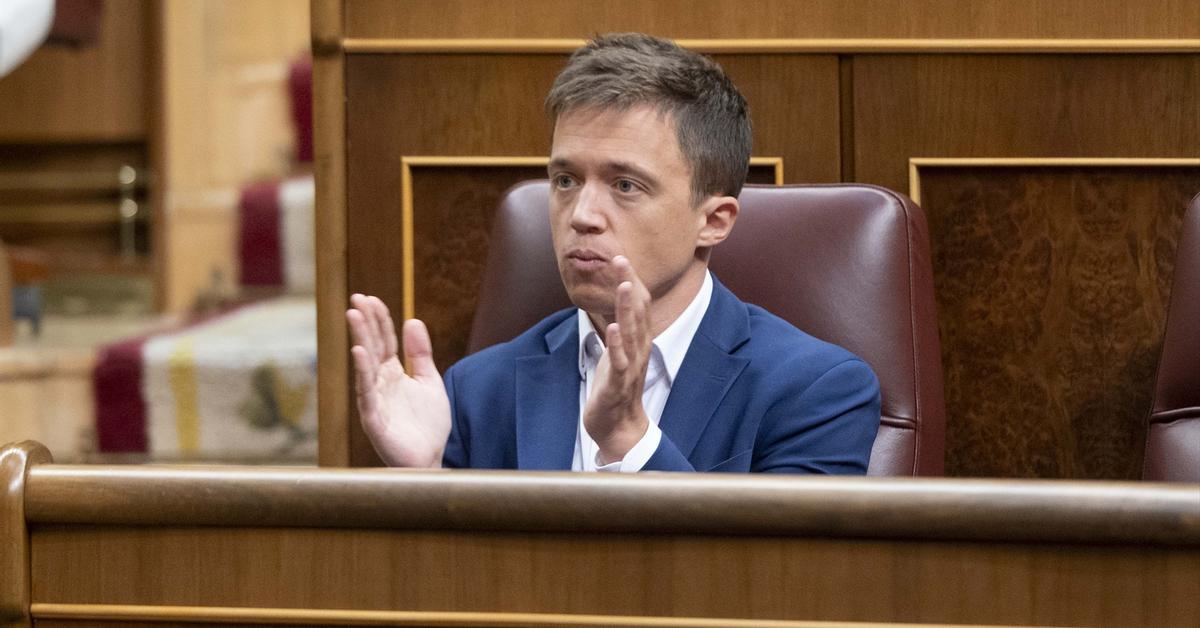
First Ábalos and now Errejón. Another ticking bomb at the heart of the Government. Both have a direct impact on two of the coalition’s flags: the fight against corruption and the feminist struggle. Who knew? Why was it hidden? Who decided to cover it? They are questions that plan in one case and in another. In the first, no one in the PSOE has admitted that they knew the facts that place the former Minister of Transport and former Secretary of Organization at the epicenter of a corrupt plot, beyond the constant buzz about his disordered private life.
In the second, at least two leaders of the Sumar space (Mónica García, from Más Madrid and María Eugenia Rodríguez Palop, former leader of Yolanda Díaz’s coalition) have publicly acknowledged that the organization was aware of other anonymous complaints and that it did not pay attention to them. attention. Much more cryptic was Sumar’s Communications Secretary, Elizabeth Duval, saying: “We didn’t know, but we probably should have known.” And Enrique Santiago (IU) asked for “social reparation” to the space led – or not – by Yolanda Díaz.
We are talking, of course, about the resignation of Sumar’s parliamentary spokesperson, who on Thursday announced that he was leaving politics after an anonymous complaint of sexist violence. The politician who arrived to storm the heavens fell in a matter of hours into a political and social hell while trying to mask the facts with a delirious self-incriminating note in which he spoke of “mistakes committed” and tried to justify with the most bizarre excuses: from frenetic pace of politics to neoliberalism.
The tsunami grew in intensity when a few hours after her resignation, the actress and television presenter Elisa Mouliaá, 35, filed a complaint against Errejón at the police station for an episode of sexist violence that she supposedly suffered three years ago and that included a horrifying account of the events that, according to police sources, could point to three alleged crimes of sexual assault. And with it the spigot was opened.
The events unleashed a real storm within a space like Sumar, which is going through its worst political and electoral moment and, therefore, reopened the debate on the viability of the project promoted by Yolanda Díaz, who was caught out by the events. institutional trip in Colombia. From there he attributed Errejón’s resignation to an investigation by Sumar that no one had previously heard about. There are already, however, those who point out the responsibility of Díaz herself and question her about whether what she knew about Errejón went beyond her partying hobby and many others. Podemos maintains that Ione Belarra herself had “a conversation about it during the negotiation of the electoral lists” with her and that the leader of Sumar ignored it.
The fact is that the fall of the last survivor of the new policy comes at a time of weakness for the vice president, with diminished influence in the Government and after a notable loss of support in the last electoral events, which led to Díaz to resign from the organic leadership of Sumar, but not from the parliamentarian. And no one is unaware that it breaks the flag of feminism raised by a left that, as the facts show, has no patent of purity when it comes to sexist violence because it does not distinguish political colors or social conditions.
Every week, a Vietnam in Parliament
The coherence between what is preached and what is practiced should, of course, be unavoidable in politics, but beyond the criminal responsibilities that arise and the rivals who rejoice in the fall to the hells of Errejón, the truth is that the scandal puts not only Sumar, but the entire Government in front of the mirror of an uncomfortable reality in one of its worst moments. Without Budgets, with the majority of the investiture cracked and waiting for the Junts and ERC congresses to determine the course to follow, the Executive finds itself in Parliament every week with a Vietnam.
The socialist part of the coalition that tries to stay out of the Errejón scandal cannot hide its concern about the matter. Both because of the weak situation of its government partner and because of the offensive deployed by the right on feminist discourse. There is the PP, in any case, they ironically, “to give protection lessons to the victims of sexist violence as Aznar has done from FAES as the President of the Government who protected the mayor of Ponferrada who was convicted for the Nevenka case.”
“We neither knew anything about all this nor are we responsible for the individual behavior of Sumar’s leaders. Let Errejón and anyone who knew about his attitudes respond,” says a PSOE minister, who admits that the slogan in any case is to support Vice President Yolanda Díaz as Sánchez himself did when he learned of Errejón’s resignation and, the next day, He was followed by Vice President María Jesús Montero.
All this just a few days after the judge investigating the Koldo case in the National Court, Ismael Moreno, has asked the Supreme Court to investigate the former Minister of Transportation and current congressman José Luis Ábalos in the face of “founded and serious indications.” ” of his “main role” in a criminal organization that allegedly profited from the sale of masks during the pandemic. The magistrate attributes to Ábalos a “clear and concrete accusation” through a series of indications that show his alleged participation in crimes of membership in a criminal organization, influence peddling and bribery.
A case that the PP, even before the accusation of Ábalos, had already turned into a matter of structural corruption that the socialists deny the majority of and believe to be perimetered in the environment of the former minister. “Neither Ábalos is Bárcenas nor is the plot directed by businessman Aldama Gürtel,” defends a prominent socialist. What is relevant this week for a PSOE minister is that the confirmation that “those of the new politics who came to teach everyone the purity of democracy” have been buried and “very evident.”
Who comes out of here weakened, in his opinion, is the so-called new politics, whose leaders seem to have a kind of curse that has made them disappear for one reason or another. So in an attempt to avoid the concern about the wear and tear that both the Ábalos case and Errejón’s alleged sexual abuse could cause in the coalition, the PSOE prefers to focus on what they believe will be an electoral dilemma between blocs, ” since, beyond the criminal implications of both cases, neither of them will cause a transfer of votes from the left to the right.” Today, they add, no one anymore believes in that speech that came out of 15M that PSOE and PP are the same, despite the Ábalos case.
Sánchez, despite everything, “calm”
In the Moncloa they affirm that the president transmits absolute “calm” in this regard, despite the fact that he is aware that the judicial offensive will last a long time and that the right will try, as until now, to spread “without any basis” a blanket of suspicion general, especially the Government and the entire PSOE. They trust, in fact, that the socialists can grow at the expense of those who have disconnected from the new politics. But that is a mystery that will not be resolved before at least two years, which they expect the legislature to last.
A time that, however, in the opinion of those who orbit the alternative left, can serve to reconstruct the atomized space that Yolanda Díaz now leads. In fact, “Errejón’s departure could be an incentive for this convergence of the different brands,” in the opinion of those who work for the long-awaited unity of the left and thus rebuild a single candidacy. Everything will depend on whether Yolanda Díaz’s manifest weakness leads her to rethink her strategies and move towards a path “with everyone in and without crossed vetoes,” as IU coordinator Antonio Maíllo said.
Source: www.eldiario.es

